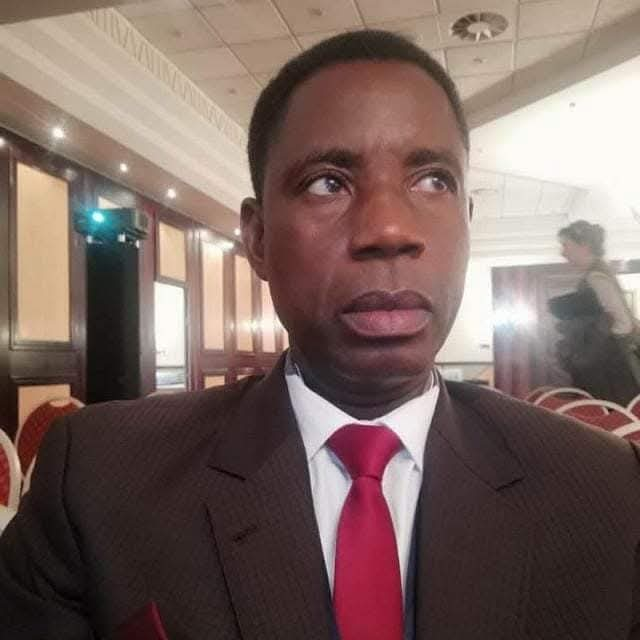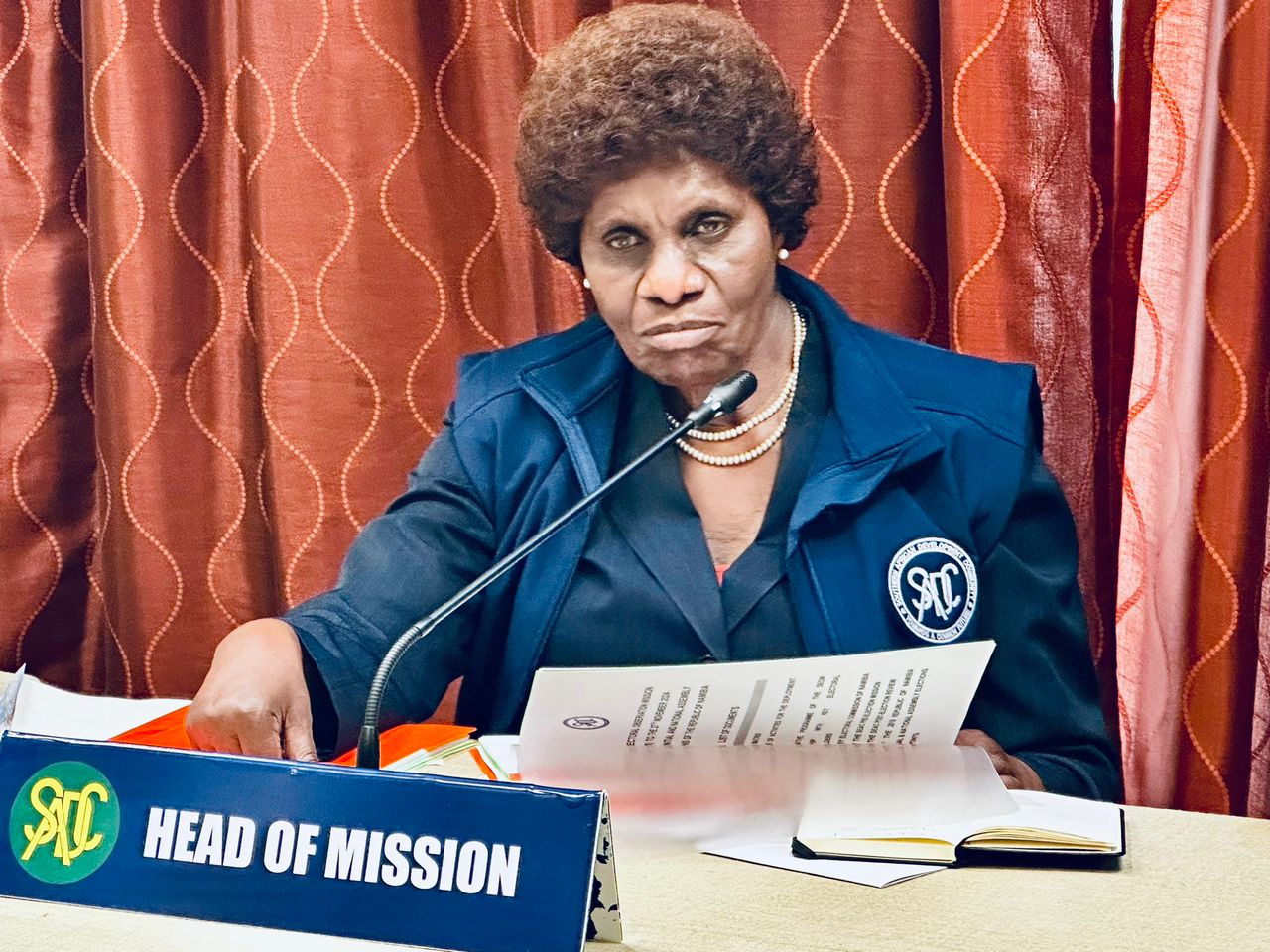IS it possible to have (opposition) parties without having opposition politics or, conversely, to have opposition politics without opposition parties? The answer is ‘yes’.
In a piece published in The Namibian and New Era in 2004, Dr Rihupisa Kandando, the Swanu President, addressed the first part of that question and it is worthwhile re-reading it. This question is important in a context where the weakness or near absence of opposition parties is constantly lamented by journalists and academics alike.The debate is framed in terms of a weak, fragile or dormant opposition unable or incapable of unseating the ruling Swapo party.Although the Namibian political landscape is littered with a plurality of parties of different hues and sizes, most have the same ideological outlook – all caught up in the neo-liberal, capitalist agenda.Thus there is, for example, nothing that differentiates Swapo from the DTA or CoD except their different historical origins and the role they played during the liberation struggle.And that has been the ruling party trump card.The masses, especially in the north of the country, are constantly reminded about the return of Koevoet and the Casspirs should they vote for parties other than Swapo.Scarcely are alternative development strategies presented to the people to make informed decisions.Because, ideologically speaking, there has been a convergence, among the parties, in terms of the thinking on many issues that affect our country and society today.The land issue is a classic example.What Kandando highlighted in his analysis was the near absence of an alternative form of politics – an African popular-democratic conception based on a culture of peace, opportunities for all and a broader popular participation in the making of public policies.Thus the conception of opposition politics in Namibia is primarily concerned with the singular notion of capturing State power in order to provide alternative management, not policies, to that of current political managers.The cases of Zambia, Malawi, Kenya, Ghana etc. illustrate this point.It’s the same car with a different driver.The first part of that introductory question is structural, whereas the second part deals with opposition as an alternative to an existing order or idea.Conceptualised along these lines then, it is clear that one can have opposition politics without necessarily having an opposition party.Feminists, for example, have, over the years, scored a number of important political victories without having to form political parties devoted entirely to women issues or liberation.Or take our own recent history.The repressive colonial regime could banish parties and sometimes imprison its leaders but not the movement, the idea or the dream.So, maybe opposition politics is alive and well but what is lacking are the structures for its articulation and eventual realisation.This is the prism through which many of those who either lament or celebrate the death of opposition politics view it.It is therefore necessary to remind critics that opposition parties and politics have been under constant harassment and attack for many decades in Africa.And this was true of the colonial and independent Africa – perhaps with varying exception of Botswana.Thus the current open political space that is being enjoyed now is of recent origin and need defending and broadening.The case of Namibia illustrates the historical dilemma of opposition parties.During the 1960s, ’70s and ’80s, any opposition to Apartheid was usually heavily crushed.This was one way of either pacifying the people or forcing them to support the ‘internal dispensation’ of the 1970s and ’80s.Thus, all progressive parties and individuals such as journalists, lawyers, students and workers were affected by this.On the external front, the international community, as well as the solidarity movement, came up with the idea of the ‘sole and authentic representative’ of the Namibian people – which meant Swapo.So, you either supported the internal parties at home or Swapo in exile – it was a double squeeze.The intentions of those who came up with these policies might have been different, but unfortunately the outcome was similar – the destruction of alternative modes and sites of politics.Although one must admit that a party like Swanu has consistently maintained its leftist leanings but lacks the electoral muscle to actualise its agenda.But understanding this historical context is crucial to understanding the current predicament of opposition politics in Namibia and elsewhere on the continent.Because the ’60s, ’70s, ’80s were lost decades for opposition politics in Africa.And it will take time and resources to recover from years of oppression by states and total neglect by international organisations.It will also take time for the masses to start seeing politics through a different prism.This is one issue that hardly features in the political literature on Namibia.Most Namibian academics, positivists as they are, are content with counting heads, i.e.which political party has what support from which ethnic groups – with certain parties being characterised as ethnic based, etc.But one issue that our academics hardly discuss is political and class consciousness.We all recognise many organisational and leadership problems that have contributed to a lame opposition.But it is the electorate that would eventually make or break opposition parties.And this in turn hinges on its level of social and political consciousness – termed ‘class consciousness’ in progressive literature.The omission of the electorate in discussing the fate and fortunes of opposition parties has been unfortunate.Here you have people who every five years go to the polls to make a ‘choice’ in an essentially ‘choice-less’ system because all the major parties are of the same ideological complexion.What do people really vote for? Or are they simply voting along historical memory lanes? I believe that low level of literacy rate among the masses, lack of clear policy alternatives among parties and partly ethnicity in the case of Namibia, but also religion and regionalism in other places such as Nigeria, are some of the factors militating against opposition politics.This question is important in a context where the weakness or near absence of opposition parties is constantly lamented by journalists and academics alike.The debate is framed in terms of a weak, fragile or dormant opposition unable or incapable of unseating the ruling Swapo party.Although the Namibian political landscape is littered with a plurality of parties of different hues and sizes, most have the same ideological outlook – all caught up in the neo-liberal, capitalist agenda.Thus there is, for example, nothing that differentiates Swapo from the DTA or CoD except their different historical origins and the role they played during the liberation struggle.And that has been the ruling party trump card.The masses, especially in the north of the country, are constantly reminded about the return of Koevoet and the Casspirs should they vote for parties other than Swapo.Scarcely are alternative development strategies presented to the people to make informed decisions.Because, ideologically speaking, there has been a convergence, among the parties, in terms of the thinking on many issues that affect our country and society today.The land issue is a classic example.What Kandando highlighted in his analysis was the near absence of an alternative form of politics – an African popular-democratic conception based on a culture of peace, opportunities for all and a broader popular participation in the making of public policies.Thus the conception of opposition politics in Namibia is primarily concerned with the singular notion of capturing State power in order to provide alternative management, not policies, to that of current political managers.The cases of Zambia, Malawi, Kenya, Ghana etc. illustrate this point.It’s the same car with a different driver.The first part of that introductory question is structural, whereas the second part deals with opposition as an alternative t
o an existing order or idea.Conceptualised along these lines then, it is clear that one can have opposition politics without necessarily having an opposition party.Feminists, for example, have, over the years, scored a number of important political victories without having to form political parties devoted entirely to women issues or liberation.Or take our own recent history.The repressive colonial regime could banish parties and sometimes imprison its leaders but not the movement, the idea or the dream.So, maybe opposition politics is alive and well but what is lacking are the structures for its articulation and eventual realisation.This is the prism through which many of those who either lament or celebrate the death of opposition politics view it.It is therefore necessary to remind critics that opposition parties and politics have been under constant harassment and attack for many decades in Africa.And this was true of the colonial and independent Africa – perhaps with varying exception of Botswana.Thus the current open political space that is being enjoyed now is of recent origin and need defending and broadening.The case of Namibia illustrates the historical dilemma of opposition parties.During the 1960s, ’70s and ’80s, any opposition to Apartheid was usually heavily crushed.This was one way of either pacifying the people or forcing them to support the ‘internal dispensation’ of the 1970s and ’80s.Thus, all progressive parties and individuals such as journalists, lawyers, students and workers were affected by this.On the external front, the international community, as well as the solidarity movement, came up with the idea of the ‘sole and authentic representative’ of the Namibian people – which meant Swapo.So, you either supported the internal parties at home or Swapo in exile – it was a double squeeze.The intentions of those who came up with these policies might have been different, but unfortunately the outcome was similar – the destruction of alternative modes and sites of politics.Although one must admit that a party like Swanu has consistently maintained its leftist leanings but lacks the electoral muscle to actualise its agenda.But understanding this historical context is crucial to understanding the current predicament of opposition politics in Namibia and elsewhere on the continent.Because the ’60s, ’70s, ’80s were lost decades for opposition politics in Africa.And it will take time and resources to recover from years of oppression by states and total neglect by international organisations.It will also take time for the masses to start seeing politics through a different prism.This is one issue that hardly features in the political literature on Namibia.Most Namibian academics, positivists as they are, are content with counting heads, i.e.which political party has what support from which ethnic groups – with certain parties being characterised as ethnic based, etc.But one issue that our academics hardly discuss is political and class consciousness.We all recognise many organisational and leadership problems that have contributed to a lame opposition.But it is the electorate that would eventually make or break opposition parties.And this in turn hinges on its level of social and political consciousness – termed ‘class consciousness’ in progressive literature.The omission of the electorate in discussing the fate and fortunes of opposition parties has been unfortunate.Here you have people who every five years go to the polls to make a ‘choice’ in an essentially ‘choice-less’ system because all the major parties are of the same ideological complexion.What do people really vote for? Or are they simply voting along historical memory lanes? I believe that low level of literacy rate among the masses, lack of clear policy alternatives among parties and partly ethnicity in the case of Namibia, but also religion and regionalism in other places such as Nigeria, are some of the factors militating against opposition politics.
Stay informed with The Namibian – your source for credible journalism. Get in-depth reporting and opinions for
only N$85 a month. Invest in journalism, invest in democracy –
Subscribe Now!






